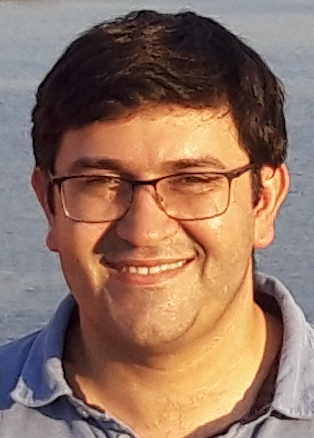Machine Learning for Physics
LIP-Lisboa/3-311 - Sala de Seminários
LIP Lisboa
This is a small workshop aimed at interested students to introduce Machine Learning techniques and algorithms applied to HEP. A series of introductory classes using dedicated tools are paired with hands-on exercises to familiarize with the needs and applications adopted for the HEP experiments at the LHC.
The workshop will take place for two full days, Thursday and Friday.
Lectures will be in presence.
Please register!
This workshop focuses on a specific aspect of the activities at the LHC and is part of the "Course on Physics at the LHC - 2025".
Data challenge!
This workshop includes a data challenge, where the participants will spend an afternoon session trying to solve a given regression problem.
The participants will be divided into groups of three, and the first three groups (according to the metric defined in the data challenge formulation) will receive prizes!!!
- One copy (per group member) of the book "Deep Learning: Foundations and Concepts", by Christopher M. Bishop and Hugh Bishop. The three copies are courtesy of Springer Nature. The winners will also receive a LIP canvas bag and a LIP paper notebook
- A LIP canvas bag and a LIP paper notebook (per group member)
- A LIP canvas bag and a LIP paper notebook (per group member)
First prize sponsored by Springer Nature
Contact:
The instructors:
|
Pietro Vischia
Ramón y Cajal senior researcher at the Universidad de Oviedo and ICTEA (Spain), Adjunct Professor at IITM. Graduated in 2016 from IST. He is the coordinator of the MODE (Machine-Learning-Optimized Design of Experiments) Collaboration, and the Machine Learning Coordinador of the CMS Experiment at CERN. Specialist in Machine Learning applied to High Energy Physics. Researcher in high-dimensional spaces via gradient descent, eventually powered by quantum algorithms, and on the extension of machine learning methods to realistic neurons with spiking networks, to be then implemented in neuromorphic hardware devices. Within CMS, he focusses on plugging inductive bias in machine learning algorithms for standard model Higgs physics (including the 2018 observation of the ttH process) and beyond-the-standard-model new physics searches in the Top, Higgs, and vector boson sectors. More info at https://vischia.github.io/.
|
|
 |
Inês Ochoa
Researcher at the Laboratory of Instrumentation and Experimental Particle Physics in Portugal. Graduated in 2015 from University College London. Particle physicist in the ATLAS Collaboration, with a focus on searches for new physics via unsupervised learning techniques and developing new algorithms for measuring Higgs boson properties. Expertise in b-tagging and jet substructure, in online and offline systems. Newly appointed co-coordinator of the HEP Software Foundation Reconstruction & Software Triggers group. More info at https://inesochoa.github.io/.
|
 |
Cristóvão Beirão da Cruz e Silva
Researcher at the Laboratory of Instrumentation and Experimental Particle Physics in Portugal. Graduated in 2016 from IST. Currently a particle physicist in the CMS collaboration. His research interests focus on detector R&D and the development of precision timing detectors, particularly for the PPS2 upgrade for the HL-LHC. He has additional expertise in data analysis using machine learning techniques, having contributed to the search for the Higgs boson decaying to two photons and SUSY searches with LHC data, particularly the search for the supersymmetric partner of the tau lepton and the search for the supersymmetric partner of the top quark in the compressed mass scenario.
|
For the lectures only:
Join Zoom Meeting
https://cern.zoom.us/j/66265392510?pwd=H8rvXWzPBHvQdaYxEOKJMAxP4Qfx2h.1
Meeting ID: 662 6539 2510
Passcode: 073300
